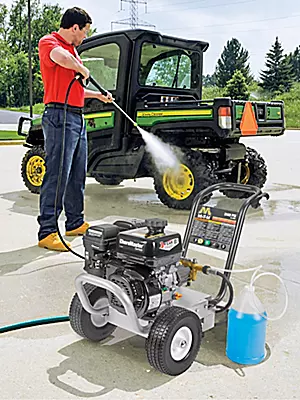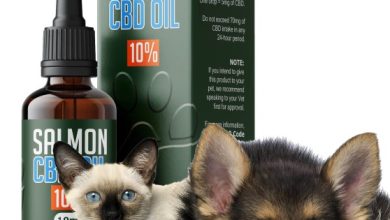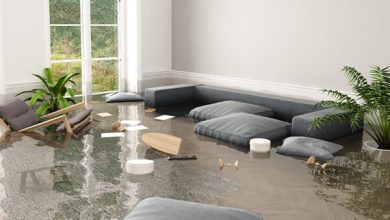Understanding Pressure Washer Dangers: What You Need to Know

Pressure washers are powerful tools that can make cleaning tasks much easier. They can remove dirt, grime, and even paint from surfaces with ease. However, their high-pressure streams of water can also pose significant dangers if not used correctly. In this article, we’ll explore the various dangers associated with pressure washers, how to use them safely, and why understanding these risks is crucial for anyone considering their use.
The Power of Pressure Washers
What is a Pressure Washer?
A pressure washer uses a high-pressure water spray to clean surfaces. These machines come in various sizes and power levels, making them suitable for a range of cleaning tasks, from washing cars and driveways to stripping paint and cleaning siding.
The Danger of High Pressure
While the high pressure of these machines is what makes them effective, it also makes them potentially dangerous. The water pressure from a pressure washer can be strong enough to cause serious injuries, including lacerations and puncture wounds.
Common Pressure Washer Dangers
Here are some common pressure washer dangers are discussed
Physical Injuries
- Lacerations and Puncture Wounds: The high-pressure stream of water can cut through skin and flesh. Even a brief contact with the water jet can result in deep wounds that require medical attention.
- Eye Injuries: Debris and water spray can be propelled at high speeds, posing a significant risk to the eyes. Without proper eye protection, users can suffer from severe eye injuries, including permanent vision loss.
- Infections: Wounds caused by pressure washers are not just surface injuries; they can push contaminants deep into the tissue, leading to serious infections. Bacteria and other pathogens in the water can cause complications if they enter the bloodstream.
Electrical Hazards
- Electrocution: Many pressure washers are electric-powered. Using an electric pressure washer in wet conditions without proper precautions can lead to electrocution. It’s crucial to ensure that all electrical connections are dry and secure.
- Electrical Fires: Faulty wiring or damaged equipment can cause electrical fires. Always inspect the equipment before use and avoid using it if you notice any frayed wires or other signs of damage.
Property Damage
- Surface Damage: The high-pressure spray can damage surfaces, especially softer materials like wood or paint. It can strip paint, etch concrete, and damage other delicate surfaces if not used correctly.
- Window Breakage: The force of the water can break windows, especially older or single-pane glass. It’s important to adjust the pressure settings and use the appropriate nozzle for different surfaces.
Chemical Exposure
- Detergents and Cleaners: Many pressure washers are used with detergents and other cleaning agents. Improper handling or use of these chemicals can lead to skin irritation, respiratory problems, and other health issues. Always follow the manufacturer’s instructions for using cleaning agents.
- Environmental Impact: Runoff from pressure washing can carry chemicals and contaminants into the environment, potentially harming plants, animals, and water sources. Proper disposal and use of environmentally friendly products can mitigate these risks.
How to Use a Pressure Washer Safely
Wear Protective Gear
- Eye Protection: Always wear safety goggles or a face shield to protect your eyes from flying debris and water spray.
- Gloves: Wear heavy-duty gloves to protect your hands from the high-pressure stream.
- Long Sleeves and Pants: Wear long sleeves and pants to protect your skin from contact with the water jet.
Inspect Equipment
- Check for Damage: Before using the pressure washer, inspect it for any signs of damage, such as frayed wires or loose connections.
- Secure Connections: Ensure all connections, including the water supply and electrical connections, are secure and dry.
Use Proper Technique
- Maintain a Safe Distance: Keep the nozzle at a safe distance from the surface you are cleaning to avoid damage and injury. The appropriate distance will vary depending on the pressure setting and the surface being cleaned.
- Adjust Pressure Settings: Use the lowest pressure setting that is effective for the task. Higher pressure settings should be reserved for tougher cleaning jobs and more durable surfaces.
- Use the Right Nozzle: Different nozzles are designed for different tasks. Use the nozzle that is appropriate for the job to avoid damaging surfaces and causing injuries.
Be Mindful of Surroundings
- Avoid Children and Pets: Keep children and pets away from the area where you are using the pressure washer. The high-pressure spray can cause serious injuries to people and animals.
- Beware of Slip Hazards: The area around you can become slippery when wet. Be cautious of your footing to avoid slips and falls.
Handle Chemicals Carefully
- Read Labels: Always read and follow the instructions on the labels of any detergents or cleaning agents you use.
- Wear Protective Gear: Use gloves and masks when handling chemicals to avoid skin contact and inhalation of fumes.
- Proper Disposal: Dispose of any leftover chemicals and runoff properly to avoid environmental contamination.
Follow Manufacturer’s Instructions
- Read the Manual: Before using a pressure washer, read the user manual thoroughly to understand the proper operation and safety precautions.
- Routine Maintenance: Regularly maintain your pressure washer according to the manufacturer’s recommendations to ensure it operates safely and efficiently.
When to Call a Professional
While pressure washers are effective tools for many cleaning tasks, there are situations where it’s best to call a professional:
- Complex Jobs: For large or complex cleaning tasks, such as cleaning high surfaces or intricate structures, a professional can ensure the job is done safely and effectively.
- Severe Grime and Stains: For tough stains and grime that require specialized equipment or chemicals, a professional service can provide better results without risking damage or injury.
- Safety Concerns: If you are unsure about the safety or operation of a pressure washer, it’s best to leave the job to a professional to avoid accidents and injuries.
Conclusion
The Importance of Safety
Pressure washers are powerful and effective tools, but they come with significant risks. Understanding these dangers and taking the necessary precautions can help you use a pressure washer safely and effectively. Always wear protective gear, inspect your equipment, and follow proper usage techniques to avoid injuries and property damage.
Final Thoughts
Whether you’re using a pressure washer for home maintenance or professional cleaning, safety should always be your top priority. By being aware of the potential dangers and following the guidelines outlined in this article, you can enjoy the benefits of a clean and well-maintained property without the risks associated with improper use of a pressure washer. If in doubt, don’t hesitate to call a professional to handle the job safely and efficiently.









